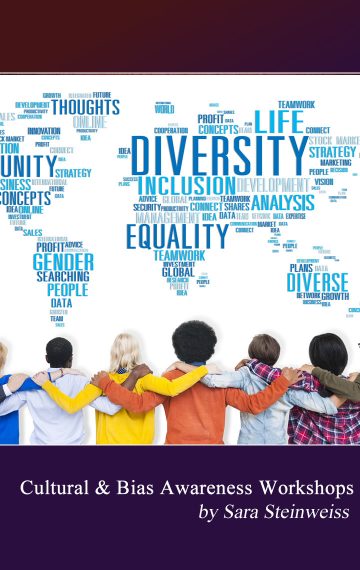Culture makes people understand each other better. And if they understand each other better in their soul, it is easier to overcome the economic and political barriers. But first they have to understand that their neighbor is, in the end, just like them, with the same problems, the same questions. – – Paulo Coelho
The Cultural Awareness & Bias Awareness Workshops are designed to enhance understanding of diversity and multi-cultural environments and examine personal biases that we as individuals and groups bring to everyday situations.
Workshops:
|
|
This workshop explores the many dimensions of diversity and works to build a common awareness as it relates to a multicultural community covering a broad definition of diversity including (but not limited to) characteristics as ethnicity, age, generational dynamics, religion, disability, sexual orientation, values, personality characteristics, morals, work ethic, education, marital status, and beliefs. Talking about race, culture, and identity can be a challenge for many individuals. Often we keep the discussion at a surface level, to avoid hurt, anger, shame and guilt. When it comes to cultural and bias awareness open and honest discussions on these topics, as well as basic history and context are necessary and often neglected. In order to move forward as individuals and as a society it is essential to address the racial inequities that continue to challenge our personal relationships, institutions, and society.
This workshop focuses participants on increasing individual self-awareness, and understanding the impact that their own judgments and perceptions have in situations and relationships with both colleagues and students alike. Participants learn to identify their own personal, internal “culture” and to have an awareness that each of us have our own personal, internal “culture”.
As in all our workshops this interactive workshop asks participants to work in small groups in order to promote cross cultural openness and awareness. A major component to this workshop is “personal storytelling” and open dialogue. Creating a safe environment allows individuals to discover a great deal about their group-mates and create bridges to bring individuals and groups together, instead of more animosity and misunderstandings that tear individuals and groups apart.
It is through this technique participants learn tools that can be used on a daily basis to self-reflect and understand how our individual culture and biases impact how we react to those around us. It is through self-reflection and use of these tools that we as individuals can grow and hold ourselves to a higher standard, one that is more inclusive and understanding to that which we do not understand.
